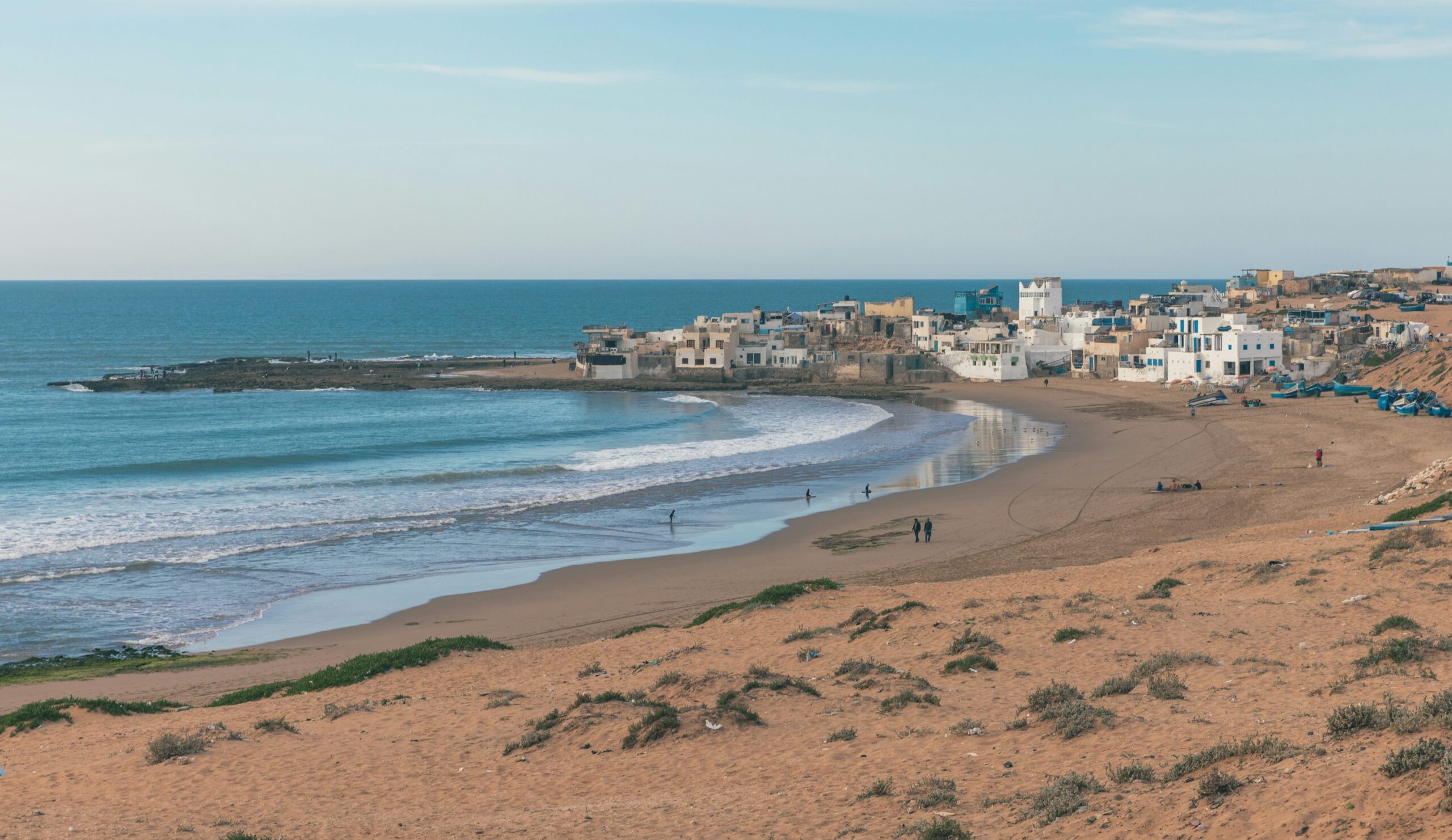If you visit beaches or swimming pools in Morocco, you will notice lifeguards on duty to ensure everyone’s safety. The lifeguard’s essential job is to help prevent accidents and respond quickly in emergencies, which requires specialized training. Lifeguard training in Morocco serves this purpose—preparing individuals to protect swimmers at beaches, resorts, and swimming pools across the country.
Morocco, bordered by both the Atlantic Ocean and the Mediterranean Sea, is home to hundreds of scenic beaches stretching over 1,800 kilometers of coastline. Swimming and water activities are popular among locals and tourists alike, making professional lifeguards vital for maintaining safety during the busy summer season.
Lifeguards in Morocco serve at beaches, resorts, waterparks, and pools to safeguard swimmers. With so many coastal destinations and aquatic centers, lifeguarding has become an essential and rewarding role.
Lifeguard training in Morocco is the first step toward an aquatic career. Once certified by a reputable organization such as the American Lifeguard Association (ALA), candidates are well-prepared to work at beaches, hotels, and recreational centers throughout the country.
ALA training centers in Morocco provide a range of lifeguard programs, offering both seasonal and year-round opportunities. While summer months bring peak demand along the coast, indoor and resort pools maintain steady employment throughout the year.
With more than 30 years of experience, the American Lifeguard Association has trained thousands of lifeguards globally. An ALA certification represents professional competence, international recognition, and a commitment to safety.
The American Lifeguard Association (ALA) is supported by Global Lifeguards and the Swimming Pool and Spa Foundation, both nonprofit organizations (501(c)(3)) focused on drowning prevention and water safety education.
The ALA’s mission is to make beaches, pools, and waterways safer. To achieve this, the association works closely with aquatic employers across North America, Africa, and beyond, ensuring lifeguards meet global safety standards.
ALA has been recognized by several major health and safety bodies, including:
Training also incorporates findings from international aquatic safety research and requires compliance with the Model Aquatic Health Code (MAHC) for pre-service and in-service evaluations.
To enroll in the American Lifeguard Association’s lifeguard training course in Morocco, candidates must meet the following minimum requirements:
Candidates must also demonstrate the following ALA prerequisite skills to complete the program successfully:
Swimming Requirements:
Timed Event:
Upon successful completion, each participant receives an ALA Lifeguarding Certificate, including CPR/AED for the Professional Rescuer and First Aid, valid for two years.
While many see lifeguarding as a summer job, in Morocco, it can be a long-term profession. Lifeguards can work at hotels, aquatic centers, and beaches all year long, especially in resort cities such as Agadir, Casablanca, Tangier, and Rabat.
Career advancement opportunities include:
These positions offer competitive pay, professional growth, and the opportunity to promote public safety within Morocco’s growing tourism industry.

During the ALA lifeguard course, participants master a comprehensive set of skills, including rescue techniques, CPR/AED, and First Aid.
Agadir Beach:
One of Morocco’s most famous beaches, known for its long sandy shoreline and clear Atlantic waters, with lifeguards on duty during peak hours.
Legzira Beach (Sidi Ifni):
Renowned for its stunning red rock arches, Legzira attracts swimmers and surfers—lifeguards ensure safety during high tide.
Essaouira Beach:
A popular destination for kitesurfing and swimming, lifeguards are essential to maintain order among active beachgoers.
Asilah Beach:
A family-friendly beach with gentle waves, where lifeguards provide safety for both locals and tourists.
Oued Laou Beach (Tetouan):
A picturesque Mediterranean beach with calm waters, staffed by trained lifeguards in summer.
Martil Beach:
One of northern Morocco’s busiest beaches, with lifeguards stationed throughout the high season.
Dalia Beach (Tangier):
Known for its beautiful views and clear waters, Dalia Beach maintains lifeguard surveillance to ensure public safety.
Temara Beach (Rabat):
Located near the capital, this popular beach has designated lifeguard stations during the tourist season.
The main goal of lifeguard training is to equip individuals with the knowledge and confidence to protect swimmers and save lives. Lifeguards in Morocco play a vital role in maintaining safety across beaches, resorts, and aquatic centers.
The American Lifeguard Association (ALA) is recognized as one of the leading aquatic safety training providers in Morocco. With over 30 years of experience, ALA continues to deliver professional, internationally recognized lifeguard training based on excellence and ethics.
For lifeguard training in Morocco, if you’re searching for “lifeguard training near me,” the American Lifeguard Association is the perfect choice. For more details on ALA lifeguard certification and training programs, please contact us.
Here are some frequently asked questions about the Lifeguard Training program you can find more on our FAQ page if you don’t feel free to send us your questions on our contact us page
Trainees learn rescue techniques, CPR/AED, first aid, and water safety management.
Yes, certified lifeguards can find work at beaches, hotels, resorts, and swimming pools nationwide
Complete an ALA-approved course, pass the swimming and rescue tests, and earn your certificate.
It ensures public safety across Morocco’s popular beaches and swimming destinations.
Lifeguards can work at swimming pools, beaches, lakes, waterparks, resorts, and aquatic centers, with opportunities for part-time, seasonal, or full-time employment.
A lifeguard’s duties include monitoring swimmers, preventing unsafe behavior, performing rescues, giving first aid, using CPR/AED, and enforcing pool or beach safety rules.
No, lifeguards also work in indoor pools, aquatic centers, cruise ships, resorts, and waterparks, depending on their certification and skills.
An ALA lifeguard certification is valid for two years, after which lifeguards must renew through refresher or recertification courses.
The American Lifeguard Association has been approved for the Capital One Affiliate Program! for Tuition Assistance Loan
To stay updated with our special offers, subscribe to our weekly newsletter. We will not share your information with any third party.
8300 Boone Blvd 5th Floor Vienna, VA 22182
703-761-6750
Media Contact
703-856-8901
alalifeguard@aol.com